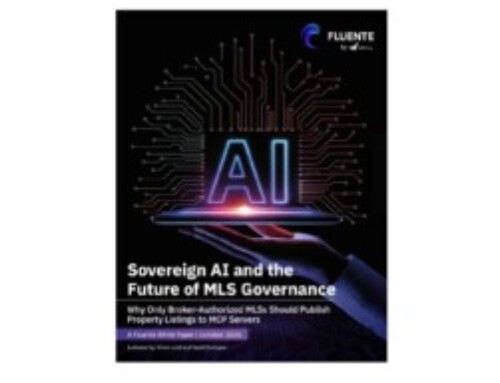Artificial Intelligence is not just another software tool. For brokers and MLSs, it represents a living, evolving system that accumulates knowledge every time it is used. The key strategic decision is whether that accumulated intelligence belongs to you. When you build and own your AI, you develop an asset. AI applications differ from SaaS, and executives must carefully consider the choices they make with their technology investments.
Intelligence Compounds
Every interaction with AI, whether training it on contracts, embedding your compliance rules, or refining consumer engagement, adds to its capabilities. Over time, these refinements form a proprietary layer of intelligence specific to your business.
If you own your AI, this intelligence compounds into a unique and defensible enterprise asset. If you rely on a third-party platform, the intelligence you help develop strengthens their system, not yours.

The Risks of Not Owning
When organizations outsource their AI foundation, the following are their consequences:
- Institutional knowledge is lost – forever. Each refinement benefits the vendor’s system, not your own.
- Strategic dependency grows. Your ability to operate depends on their roadmap, pricing, service levels, corporate ownership, and compliance posture.
- Competitive edge erodes. Over time, your data and insights become indistinguishable from those of everyone else.
The Advantages of Ownership
When you build and govern your own AI systems:
- You capture equity in intelligence. Every training cycle increases the value of your proprietary model.
- You strengthen compliance and security. Sensitive rules and business intelligence remain under your purview.
- You build an enduring advantage. Competitors cannot easily replicate the intelligence that has been tailored to your workflows, your market, and your people.
The Strategic Imperative
AI is more than just technology; it is an extension of organizational memory, judgment, and foresight, expressed through software. For brokers and MLSs, the long-term winners will be those who treat AI not as a subscription to be consumed, but as an asset to be owned, governed, and continuously improved.
Ownership ensures that the intelligence your people create stays with you, compounding in value year after year.




